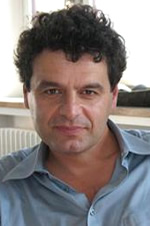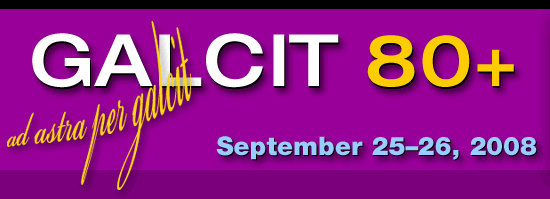 Petros Koumoutsakos Petros Koumoutsakos
Professor, Institute of Computational Sciences- Eidgenössische Technische Hochschule (ETH) Zurich
Petros Koumoutsakos has been Full Professor of Computational Sciences at ETH Zurich since 2000. Petros Koumoutsakos, was born in Gythion, Laconia, Greece in 1963. He studied at the National Technical University of Athens (1981–1986) and received his Diploma in Naval Architecture and Mechanical Engineering. He received a master's degree (1987) in Naval Architecture from the University of Michigan, Ann Arbor. He continued his graduate studies at the California Institute of Technology where he received a master's degree in Aeronautics (1988) and a PhD in Aeronautics and Applied Mathematics (1992). During 1992–1994 he was an National Science Foundation postdoctoral fellow in parallel supercomputing at Caltech. Since 1994 he has been a senior research associate and maintains an active affiliation with the Center for Turbulence Research (CTR) at NASA Ames/Stanford University. From September 1997 to June 2000 he had been an assistant professor in Computational Fluid Dynamics at ETH Zurich.
Abstract: Diffusing, Growing, Swimming : Multiscale Simulations using Particles
What can we learn about a cell's endoplasmic reticulum from turbulence simulations? How can we harness 100,000 processors for the study of cancer? How can we harvest energy from an eel?
We will address these questions as we explore the dynamics of complex physical systems that emerge in the fields of fluid mechanics, biology, nanotechnology and their interfaces. Our computational investigations rely on novel, multiscale, particle methods that address common computational challenges across diverse physical problems.
Particle methods involve computational elements with time dependent properties and entail a broad class of computational schemes ranging from molecular dynamics to vortex methods. We present enhancements to the classical method in order : to accurately simulate processes with complex, deforming geometries (as in diffusion in the endoplasmic reticulum, tumor growth and eel swimming), to resolve systems requiring computational adaptivity and multi-resolution (interface capturing in astrophysics and two phase flows) and to couple stochastic and deterministic models of multiscale systems (spatial modeling of biological networks and nanotubes in dense fluids).
We will discuss insights that have been gained by our computational investigations, including the role of geometry in estimates of diffusion constants in cell organelles and the link between swimming modes and energetics of anguiliform swimmers.
+ go to top
|


 Petros Koumoutsakos
Petros Koumoutsakos